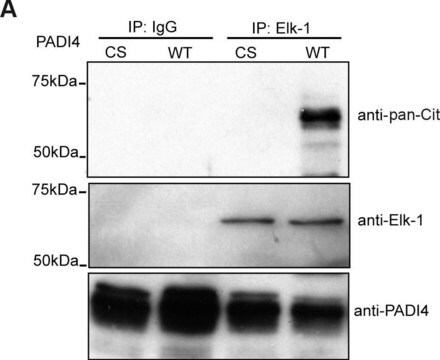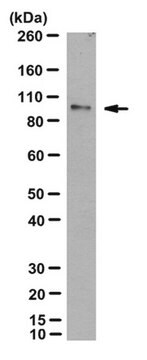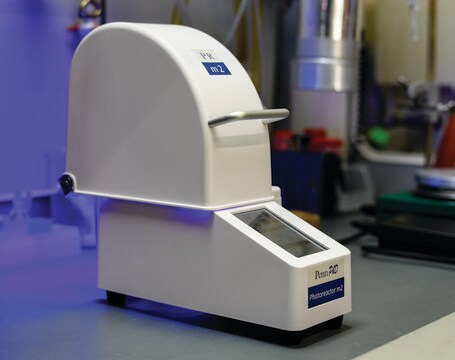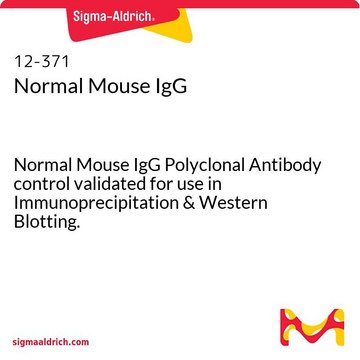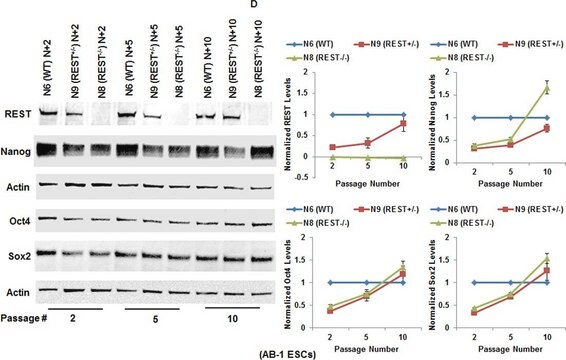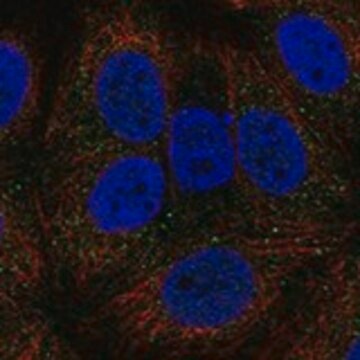SAB4200084
Monoclonal Anti-AGO1 antibody produced in rat
~1 mg/mL, clone 4B8, purified immunoglobulin
Sinónimos:
Anti-Argonaute-1, Anti-Eukaryotic Translation Initiation Factor 2c, subunit 1, Anti-GERP95, Anti-Golgi Endoplasmic Reticulum protein 95 kDa
About This Item
Productos recomendados
biological source
rat
Quality Level
conjugate
unconjugated
antibody form
purified immunoglobulin
antibody product type
primary antibodies
clone
4B8, monoclonal
form
buffered aqueous solution
mol wt
antigen ~95 kDa
species reactivity
human, canine, mouse, monkey, bovine
concentration
~1 mg/mL
technique(s)
immunoprecipitation (IP): suitable
western blot: 1-2 μg/mL using HEK-293T cell extracts
isotype
IgG2a
shipped in
dry ice
storage temp.
−20°C
target post-translational modification
unmodified
Gene Information
human ... EIF2C1(26523)
mouse ... Eif2c1(236511)
General description
Immunogen
Application
- Monoclonal Anti-AGO1 antibody produced in rat has been used in:
- western blotting
- immunoprecipitation
- chromatin immunoprecipitation(CHIP) assay
- RNA immunoprecipitation
- RNA-nChIP experiments
Immunoprecipitation (1 paper)
Biochem/physiol Actions
Physical form
Disclaimer
¿No encuentra el producto adecuado?
Pruebe nuestro Herramienta de selección de productos.
Storage Class
10 - Combustible liquids
flash_point_f
Not applicable
flash_point_c
Not applicable
Elija entre una de las versiones más recientes:
¿Ya tiene este producto?
Encuentre la documentación para los productos que ha comprado recientemente en la Biblioteca de documentos.
Nuestro equipo de científicos tiene experiencia en todas las áreas de investigación: Ciencias de la vida, Ciencia de los materiales, Síntesis química, Cromatografía, Analítica y muchas otras.
Póngase en contacto con el Servicio técnico